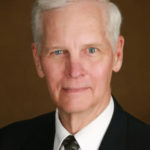
Advances in technology have produced a growing variety of new educational tools and models. Learners generally like these new approaches, but there are very few studies that examine long-term retention and application compared to more traditional didactic teaching methods.
“We have some significant unmet needs and opportunities in medical education today, particularly in rheumatology,” said Sterling West, MD, Professor of Rheumatology at the University of Colorado School of Medicine. “Some of that is looking at how effective newer teaching methods really are. And we have a huge opportunity in providing tele-education to help alleviate the projected lack of rheumatologists in the not very distant future.”
Dr. West will discuss the major advances, needs, and opportunities in rheumatologic education during the annual Medical Education Year in Review symposium from 1:00 – 2:00 pm Sunday in Room 23 A. In addition to longer-term research into the impact of new teaching techniques and implementation of remote education programs, he will explore the need for more and continuing education in ultrasound.
“Ultrasound is the rheumatologist’s stethoscope,” Dr. West said. “European clinicians have been using musculoskeletal ultrasound for quite a few years and have shown us the advantages. The question now is, where are we going to put ultrasound into the curriculum and find the time to teach it? Ultrasound is a critical skill for us to teach rheumatology fellows, but we don’t have enough experts to teach it.”
The ACR is helping with its core course series. But a one-time exposure is not sufficient to learn either the techniques of ultrasound imaging or the skills needed to interpret images and use them to guide management. Even a more detailed introduction during fellowship training is just the beginning. Effective ultrasound training requires consistent follow up.
“You need someone who, on an ongoing basis, can tell you yes, you got this right, you’re overthinking this one, and you missed this entirely,” Dr. West said. “That is another area in which ongoing teaching is going to be important for clinicians coming back at the end of their fellowships.”
Tele-education meshes nicely with tele-rheumatology. The concept of using technology to present cases remotely to rheumatologists at hub facilities assumes that the field clinician is sufficiently well trained to present complex rheumatologic cases. Family practice physicians, internists, physician assistants, and nurse practitioners who might need a remote consult may, or may not, have the training and skills to adequately prepare a case.
“A consulting rheumatologist is only as good as the person presenting the case and data to us,” Dr. West said. “It is very hard to know how accurate the synovitis is or whether everything has been asked of the patient that we need in order to make a confident diagnosis or treatment plan. Providing education programs through telecommunications will help bring other providers up to speed. When we have better educated physicians, physician assistants, and nurse practitioners out there, they will be able to give us better, more complete information so we can better provide the appropriate advice when they call us.”
The best news from the past year is that rheumatology continues to lead the way in medical education at all levels, from medical schools through residency and fellowship programs.
“We are recognized as doing good case histories, performing complete physical exams, and applying them to exciting diseases that require real expertise to make an accurate diagnosis and come up with an appropriate treatment plan,” Dr. West said. “This symposium is one more element in the ACR’s continuing emphasis on fostering clinical education and clinical educators.”


